Commentaries
Your Present Location: Teacher_Home> Wang Wen> Commentaries20 QUESTIONS for 2020
Source: China Daily Published: 2020-1-2
Editor's Note: With the arrival of the new year, China Daily has invited experts to share their outlooks on a number of issues that are likely to be in the news this year.

Wang Wen, executive dean of the Chongyang Institute for Financial Studies, Renmin University of China
Q: Will there be a ceasefire in the Sino-US trade war?
A: With the two sides agreeing on a phase one trade deal, the first stage of the Sino-US trade war is already over.
The United States has had to accept that China's economy today is more able to withstand external pressure. But the fact that the US triggered the trade war shows that it is desperate to contain China's rise in order to maintain its global hegemony. Therefore, the trade war is unlikely to end quickly, and continuous negotiations are likely to be the new normal this year with the frictions becoming more severe.
One of the influencing factors being that 2020 is a presidential election year in the US, which will make the situation more complicated than before.
Under such circumstances, it is of great significance that China focuses on developing its own economy well and further promotes reform and opening-up.
To further fortify its economy, China should accelerate its economic transformation and upgrading to realize innovation-driven high-quality economic development.
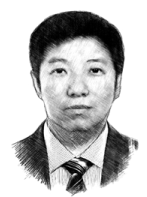
Li Xuesong, deputy director of the Institute of Industrial Economics, Chinese Academy of Social Sciences
Q: Will China's GDP growth rate further decline?
A: With policymakers giving top priority to economic stability and job creation, it is expected that China's GDP growth rate this year will basically remain the same as last year at about 6.0 percent.
Through positive fiscal policy and prudent monetary policy, as well as measures that give full play to the fundamental roles of consumption and investment, benign interaction among various sectors is being promoted that will boost both manufacturing and household consumption.
China's infrastructure and manufacturing investment will be boosted by the recovering external demand as well as the government's countercyclical regulation. Domestic consumption upgrading will create more demand for the manufacturing industry, and the positive effects of measures to further open up the economy and the reduction in taxes and administrative fees will become further evident in the coming months.
All these measures will be conducive to improving the efficiency of enterprises and stimulating their vitality.
They will also help to attract foreign investment, stabilize economic growth and strengthen the country's economic growth potential.
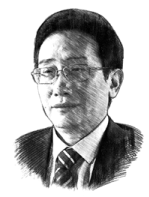
Ni Pengfei, director of the Center for City and Competitiveness, Chinese Academy of Social Sciences
Q: Will housing prices fall?
A: Commercial housing prices will remain stable but show a significant tendency of differentiation among various cities in 2020. The annual growth rate of total commercial housing sales volume will probably be 5-10 percent.
The main reason that commercial housing prices will remain stable this year is that there is still purchasing demand, but the central government is maintaining price-control policies to keep the market from overheating.
There is still huge demand for commercial housing from the three main sources-the demand of new urban residents, that of existing urban residents to change their housing and the relocation demand of some urban citizens due to renovation projects.
But while the attractiveness of first-and second-tier cities will increase, the appeal of third-and fourth-tier cities and below will continue to decline, with the differential trend becoming more marked.
And since speculation still exists in the real estate market, the central government's price-control policies are likely to be adjusted as necessary to keep the operation of the real estate market within a targeted range.
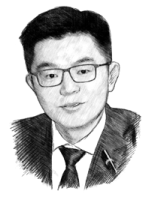
Tian Xu, a researcher at the Institute of World Economics and Politics, Chinese Academy of Social Sciences
Q: Will Brexit be realized?
A: Since the Conservative Party decisively won the December election, the impasse over Brexit will probably end this year.
Yet even though the Conservative Party has won a majority of the seats in Parliament, Prime Minister Boris Johnson still needs to coordinate different voices within the party so as to guarantee a Brexit deal is passed.
Compared with the 2017 election that exacerbated the Brexit contradictions within the Conservative Party, the recent election may have been beneficial to the party finding common ground, which may enable Johnson to accelerate the Brexit process.
An act prohibiting a no-deal Brexit that was passed in September has been backed by other political parties, which means the chance of a hard Brexit has been minimized. Twenty-one Conservative Party members even risked their careers to support the act. Which indicates that most of the members of Parliament are opposed to a hard withdrawal, even to using the possibility as a bargaining chip in the negotiations with the EU.
So it seems that with the United Kingdom's position settled, the pressure is once again on the EU.
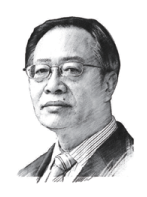
Zhang Dinghuai, a professor on Hong Kong and Macao studies at Shenzhen University
Q: Will Hong Kong restore order?
A: The months of rioting in the Hong Kong Special Administrative Region have inflicted heavy damage on the city, but it is unlikely that order and stability will be restored any time soon.
The rule of law has been seriously undermined by the rioting and the SAR economy is suffering.
But although the rioters' logic of defending the rule of law by breaking the law is unacceptable in any society, there will be more uncertainty ahead as the opposition camp now dominates the district councils.
The Hong Kong government is making efforts to improve people's livelihoods, such as providing more affordable public apartments to ease the difficulty caused by high housing prices, but the main problem-the diverse values among Hong Kong residents-remains unresolved.
Especially since the rioters will attack any Hong Kong residents who hold a political view different from theirs, and use mafia-style intimidation to silence them.
It is vital for the SAR and central governments to enhance communication with different parties in Hong Kong society, as more efforts need to be made to bridge the gaps between people holding different values.
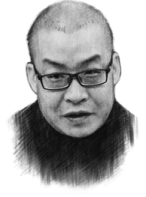
Zhu Songling, a professor at the Institute of Taiwan Studies, Beijing Union University
Q: Will cross-Straits ties improve?
A: Any thaw in the cross-Straits relationship rests on acceptance of the 1992 Consensus that there is only one China. The administration of Tsai Ing-wen refuses to uphold that consensus, which is the political foundation for cross-Straits exchanges.
The reason why her administration is sparing no effort in trying to hinder cross-Straits exchanges is that since its stance means it has no way to reap any benefits from cross-Straits relations, so it is trying to shut the door on other parties and individuals that uphold the 1992 Consensus so they too are unable to benefit.
Her administration is also exploiting the violent demonstrations in the Hong Kong Special Administrative Region to try and leverage political gains. By stigmatizing "one country, two systems", the Tsai administration is attempting to inflame political hostility across the Straits and divert voters' attention from the poor state of the economy and people's worsening livelihoods.
She is also trying to make Taiwan part of the US's strategy to contain China's rise, which means if Tsai is reelected as the island's leader in January it may cause greater turbulence in cross-Straits relations.

Ba Dianjun, head of the Institute of International Politics and deputy director of Northeast Asia Research Center, Jilin University
Q: Will tensions on the Korean Peninsula continue?
A: Since the historic summit between the leaders of Democratic People's Republic of Korea and the United States in Singapore in June 2018, there has been a deterioration in the two countries' relations, which has caused worries that the Korean Peninsula issue will worsen.
It is difficult for the DPRK and the US to agree to each other's requirements. Although the US has expressed willingness to maintain communication, there has been no sign that it is considering easing sanctions against the DPRK, which, on its part, has made no commitment to completely give up its nuclear weapons.
Therefore, there is a growing possibility that the Korean Peninsula will return to the tensions that existed in 2018 before the Singapore meeting.
Even though the Six-Party Talks have ground to a halt, they taught the lesson that multilateral participation can provide more room for mediation, so China, Japan and the Republic of Korea are showing they are willing to take more active roles as mediators which may help push forward the Korean Peninsula peace process.
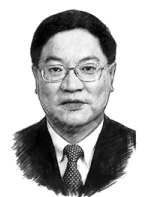
Shen Dingli, a professor at and former executive dean of the Institute of International Studies, Fudan University
Q: Will the United States withdraw from the World Trade Organization?
A: The US will not quit the WTO, otherwise it would become marginalized in global trade. Instead, the US will stay in the WTO system but seek to weaken it.
The US testing of the WTO has begun. Blocking the dispute settlement system is one means. Another important approach is to establish free trade zones with countries with strong economies and large markets, such as the recent trade agreement reached with Canada and Mexico, the bilateral trade deals with Japan and the Republic of Korea, and the proposed trade deals with the European Union and the United Kingdom.
With the smaller FTAs covering most developed countries in the WTO, the organization itself will suffer from internal decoupling, declining total trade volume, and a lower level of free trade. Washington will thus get a chance to force a change in the WTO so that it meets its requirements again.
Meanwhile, Washington may leave China in the weakening WTO system in a bid to force it to end its subsidies to State-owned enterprises and keep expanding opening-up.

Zhang Deyong, a research fellow at the National Academy of Economics Strategy, Chinese Academy of Social Sciences
Q: Will pork prices return to normal?
A: The most important factor affecting the pork prices in 2019 was the outbreak of African swine fever.
Now the outbreak has been controlled, the pork production cycle will start to recover, especially with the government introducing support policies to encourage pig raising and increase pork imports. Pork prices are therefore likely to further fall.
And since pork prices are the main factor behind the rise in the consumer price index, the rising CPI trend can be arrested if pork prices are reduced to a reasonable level.
Should the CPI continue to rise, it would have a negative impact on efforts to stabilize overall economic growth. So to cope with the pressure of the economic downturn, the authorities will take measures to stabilize the CPI.
The government will therefore continue to support the pork production cycle, and as pork producers are expected to increase investment in the sector, the pork supply will increase and prices will fall.

Lu Zhian, a researcher at the Research Center of Human Rights, Fudan University
Q: Will China take effective measures to better safeguard bio-identification privacy?
A: Face, voice and fingerprint recognition technologies are being increasingly used in different sectors. How to strike a balance between the convenience and security they bring to people and protection of the collected personal information is a pressing issue.
The security of bio-identification technology depends on who uses the technology and how it is used. China already has 40 different laws and rules on online information security and an individual information law is being drafted, but future legislation should stipulate the use and management of bio-identification technology and the information collected, make clear the requirements and conditions for the use of relevant information and technology, each party's responsibilities and set out a clear supervisory mechanism and means of redress.
Moreover, an appraisal mechanism for the use of bio-identification technology and information should be established. And a system should be set up jointly by the government and enterprises to provide effective redress for victims of bioidentification information theft or leaks.

Liu Ying, a researcher at the Institutes of Science and Development, Chinese Academy of Sciences
Q: Will the application of 5G be transformative?
A: It is apparent that 5G technology will be profoundly applied and utilized in a wide range of sectors, and it will enable the internet of things, virtual reality, augmented reality and the industrial internet.
The internet of vehicles and driverless cars are considered one of the immediate applications of 5G technology. But fields such as manufacturing, energy, public security, healthcare and finance have enormous potential for 5G.
And it is apparent that with the increasing popularity of short video clips and maturity of augmented and virtual reality, the users' demand for mobile traffic data is increasing.
The drawing up of standards for 5G has defined the technology requirements, and 5G's potential to transform our lives has been welcomed by society. Since 5G technology is equipped with unparalleled advantages, network construction will advance. But the construction of 5G networks will probably be rolled out in a gradual way as they require immense financial support as they cost more than 4G networks.
In the initial stage of 5G's rollout, the fees for 5G will be high. However, the cost of 5G will come down over time.

Yuan Xin, a professor at the Institute of Population and Development, Nankai University in Tianjin
Q: Will China raise the retirement age?
A: A plan for raising the retirement age is due to be discussed this year, and it is likely that people will be required to work longer for a number of reasons.
First, the average life expectancy has increased from 43 years in the 1950s to 77 years in 2018. Since Chinese people now live longer than they used to, it is reasonable to increase the number of working years.
Second, raising the retirement age would ease the pension pressure on the government's coffers. The extra five working years would pump more money into the pension pool while reducing expenditure.
Third, China has a rapidly aging society, and therefore a declining working age population. Delaying the retirement age from 60 to 65 would mean an additional 100 million workers.
But apart from raising the retirement age, sustaining economic growth serves as the foundation for supporting an increasing number of old people. It's vital to keep boosting the national economy.

Xiong Bingqi, deputy director of the 21st Century Education Research Institute
Q: How can the quality of undergraduate education be improved?
A: There is no doubt that higher standards have to be imposed on students for graduation.
It would be unfair though if stringent requirements were merely placed on the students without enhancing the quality of courses and teachers.
While teachers accuse students of not taking classes seriously, surveys show students complain of having to learn boring and pointless subjects which make them lukewarm about studying.
It is high-quality courses that serve as the foundation of overall improvement of undergraduate education. Colleges should enjoy more autonomy over the majors they offer and provide more elective modules for students in accordance with the specialties of colleges and changes in employers' needs.
It is also imperative to change the criteria for evaluating the performance of teachers.
Currently, the government and society usually judge the level of a university in terms of its academic results. Accordingly, universities commonly evaluate teachers' work by the number of papers and prizes they have, which prompts professors to invest most of their energy and efforts into research rather than teaching.
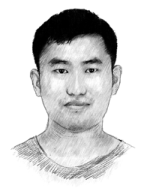
Gao Yuan, an assistant research fellow at Tsinghua University
Q: What areas might blockchain be applied to?
A: First, blockchain could be applied to better protect communication privacy and security, because the existing internet and communication technology system of storing all data on servers is not foolproof.
While providing the same user experience, blockchain can better protect the privacy of users. It will ensure that when you chat with others, you don't have to worry about your chat information being leaked or intercepted by anyone.
The application of blockchain to communication requires the deployment of the internet of things equipment on a certain scale. Yet at this stage, the procurement and deployment costs of IoT equipment are relatively high. In addition, the lack of a unified technical standard and implementation plan are also problems.
Second, blockchain could be used in wireless edge computing. Edge computing is a typical distributed computing technology that processes data at a location close to the terminal of an IoT device. For example, the functioning of air conditioners, water heaters and refrigerators and security cameras can be coordinated through edge computing, ensuring optimal energy saving and service status even when the cloud server is not connected.

Li Lifeng, a professor of law at Jilin University
Q: How can school bullying be curbed?
A: With more severe cases being reported. Chinese people are increasingly concerned about school bullying. However, it is a complicated issue to address.
There is a growing call from the public to address school bullying in terms of the Criminal Law. But there are many difficulties involved.
A judgment under the Criminal Law for juvenile misbehavior can stick to a person throughout their life, especially when the social credit system is playing a growing role in social life. Some involved in bullying may deserve a second chance. There needs to be a distinction between school bullying and violence that is a crime by juvenile perpetrators.
Those juveniles responsible for extremely violent acts should be judged under the Criminal Law, but less serious bullying, the sort that young people often engage in while growing up and becoming socialized should be carefully measured for its effects and treated accordingly.
Then another problem appears: how to establish a discipline system for perpetrators of different levels of mild violence and bullying. How to let them realize and seriously reflect on their wrong deeds? Where to discipline those minors?
The government should support the establishment of special institutions where misbehaved minors can continue their education instead of staying at school. Those children should accept special education and discipline according to their deeds.
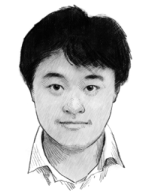
Shi Hao, a scientist with the space mission engineering program at China Aerospace Science and Technology Corporation
Q: What space missions does China have planned for this year?
A: On Dec 27, Long March 5, China's new-generation rocket, was successfully launched. Compared with the Long March rockets in service, it represents significant progress in terms of its carrying capacity.
The Long March 5B, the Low Earth Orbit version of Long March 5, will make its maiden flight this year and will be used to send the next-generation manned spacecraft into orbit. This will play a major role in China's coming manned moon missions.
Two HJ-2 optical remote sensing satellites will also be put into use this year to help with environmental monitoring and disaster mitigation work.
China also plans to launch a Mars explorer, which is expected to realize orbiting, and then landing and roving over the surface of Mars in 2021.
China will also carry out the country's first lunar sample-return mission, which will be the world's first since 1976. Chang'e 5 is expected to come back with 2 kilograms of samples taken from the moon's surface and will test the lunar ascent stage and lunar orbit rendezvous and docking technologies for China's future manned missions to the moon.
And the construction of the Beidou Navigation Satellite System will be finished, forming a high-accuracy satellite positioning and navigation system that serves global users.

Beate Trankmann, UNDP resident representative in China
Q: What changes will there be in poverty alleviation work after China eliminates absolute poverty?
A: China is on track to end extreme rural poverty this year, a key goal in its 13th Five-Year Plan (2016-20).
To address the new set of complex and interconnected challenges in 2020 and beyond, it is important to recognize that poverty has many dimensions besides income. China's 14th Five-Year Plan (2021-25) should therefore focus on reducing relative poverty, while addressing inequalities between rural and urban areas as well as within cities, and between generations and genders.
As China continues its journey toward a prosperous society, having already reached upper-middle income country status, measures for income poverty should evolve with it to reflect improving living standards and rising costs of living. The World Bank sets the poverty line for lower and upper middle-income countries at $3.20 and $5.50 per day respectively, compared with China's national poverty level of 2,995 yuan ($428) per year.

Liu Ying, a researcher at the Institutes of Science and Development, Chinese Academy of Sciences.
Q: How to strike a balance between scientific development and research ethics?
A: The rapidly developing technologies such as big data, artificial intelligence and gene-editing have unleashed huge innovation potential. But people are also concerned that these promising technologies, if unregulated, could become a Pandora's box, which might bring about unexpected dangers and have unintended consequences.
Given the crisis of science ethics, several countries have stepped up efforts to formulate legislation and set up ethical standards for scientific research. China too needs to accelerate legislation on emerging technology fields, set up standards for the application of technology, and launch publicity campaigns to raise people's awareness of science education.
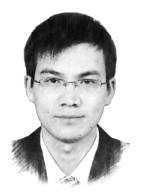
Xie Laihui, an associate researcher at the National Institute of International Strategy and the Research Center of Australia, New Zealand and South Pacific, Chinese Academy of Social Sciences
Q: What achievements has the Belt and Road Initiative made over the past year?
A: The Belt and Road Initiative made four major achievements in 2019. First, new participants from Western Europe, North America and Latin America signed cooperation agreements with China on the Belt and Road Initiative and the initiative has expanded cooperation in third-party markets.
Second, a framework on debt analysis was established during the second forum on international cooperation in April to make participants make more scientific decision-making, which could help them control debt risks and promote the high-quality development of the Belt and Road Initiative.
Third, mechanisms for a clean Belt and Road have been developed through treaties and pilot projects. That means countries involved in the Belt and Road Initiative have strengthened their anti-corruption cooperation, and dealt a heavy blow to business bribery.
Fourth, participating countries have deepened cooperation to promote green development of the Belt and Road. Low-carbon and sustainable development have been included as the goals of Belt and Road projects.
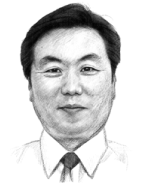
Qiao Xinsheng, a professor of law at Zhongnan University of Economics and Law
Q: What can the authorities do to improve the doctor-patient relationship?
A: First, it should be noted that the most recent violent hospital incident that has sparked so much public anger, in which a doctor named Yang Wen was killed on the Christmas Eve, was not a doctor-patient conflict, but a severe criminal case. However, it has exposed some deep-rooted problems that may arouse some patients or their families to take the doctors as scapegoats for problems such as expensive medical bills and the huge difficulty in seeing a doctor.
The authorities need to introduce reforms to change the regime whereby doctors rely on the rebates of medicines they prescribe since their salaries can't support them to live a decent life compared with their huge workloads.
Also law enforcement needs to be strengthened to protect medical staff from any illegal claims or even attacks from the patients or their families.
Wang Wen is professor and executive dean of Chongyang Institute for Financial Studies, at Renmin University of China and executive director of China-US People-to-People Exchange Research Center.
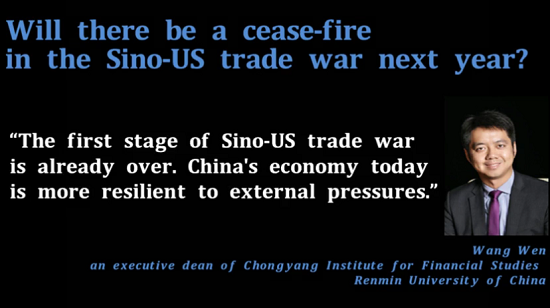























































































 京公网安备 11010802037854号
京公网安备 11010802037854号





